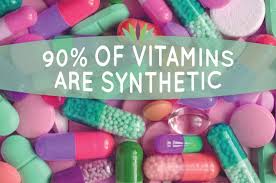Also known as retinal palmitate and retinol palmitate, vitamin A palmitate is one of the most commonly found of all the synthetic vitamin isolates. Virtually all the homogenized milk that children have drank for decades has been fortified with the additive vitamin A palmitate.
“The Environmental Working Group (EWG) and New York Senator Chuck Schumer have called attention to the fact that high doses of topical retinyl palmitate were shown to accelerate cancer in lab animals …” (Source: Wikipedia)
The first question anyone might ask is why is a synthetic vitamin isolate being put into so many food products, including milk, when it has been shown to accelerate cancer in animals undergoing laboratory tests?
The debate about vitamin A palmitate has been raging in research institutions and university laboratories since it was first synthesized. Because it has been used in advertising for so long as a food and body product enhancer, revealing its downside health risks and adverse side effects would expose many a company to serious legal action and subsequent financial liability.
“In virtually every study on vitamin A toxicity, it is isolated, synthetic supplements that are associated with adverse effects, not foods. Experimental animals and human subjects receive or are taking retinyl acetate, retinyl palmitate, or a synthetic retinoic acid derivative. Even small amounts of synthetic forms of vitamin A may be toxic, the actual amount differing with individuals and factors such as liver health. It is the toxicity of synthetic forms of vitamin A that produce the publicity about alleged dangers of vitamin A. Natural food sources of vitamin A are well tolerated at even high doses.”

